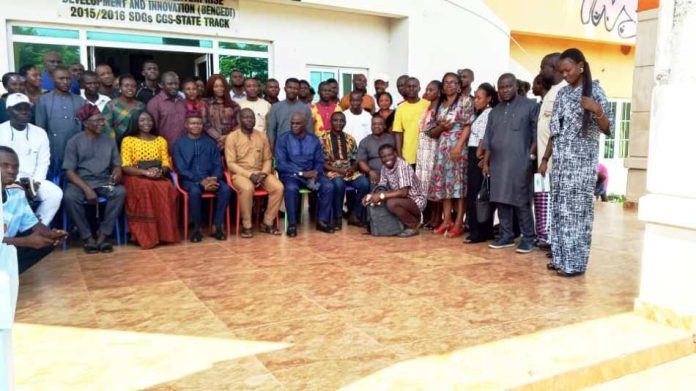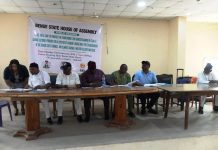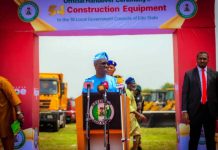FIC Report (Benue State) – The Executive Director/CEO of the Nigerian Export Promotion Council (NEPC), Mrs. Nonye Ayeni, has reaffirmed the Council’s commitment to empowering Nigerian youths through capacity-building and increased participation in the non-oil export sector.
Mrs. Ayeni, represented by Mr. Friday Ogiri, Chairman of the State Committee on Export Promotion, Benue State, made this known on Thursday, 9th October 2025, in Makurdi during a one-day workshop themed “Youth Inclusiveness in Non-Oil Export for Sustainable Economic Growth in Benue State.”
She emphasized that youths remain vital stakeholders in the export value chain but have long been underrepresented in mainstream economic activities. According to Mr. Ogiri, NEPC is implementing strategic initiatives such as the Youth Export Programme (YEP) to equip young Nigerians with the skills, knowledge, and mentorship needed to compete globally.
He noted that the initiative focuses on promoting youth-led enterprises in exportable commodities such as ginger, soybeans, tomatoes, and cotton. NEPC, he added, has also partnered with the Kaduna State Government and the National Youth Service Corps (NYSC) to create employment opportunities and empower corps members in non-oil export ventures.
Highlighting NEPC’s national campaign tagged “Double Your Export,” Mr. Ogiri stated that the programme seeks to boost Nigeria’s foreign exchange earnings and strengthen ongoing efforts to diversify the economy away from crude oil dependency.
He commended participants for their enthusiasm and encouraged them to take full advantage of the training for personal and community development.
In a paper presentation at the workshop, Professor Olotula O.A, PhD, a consultant, noted that two years into President Bola Ahmed Tinubu’s administration, Nigerians have faced economic challenges such as the depreciation of the naira, rising fuel prices due to subsidy removal, and food inflation exceeding 80 percent since the 2023 elections.
Despite these challenges, Professor Olotula emphasized that Nigeria remains a middle-income, mixed economy with growing sectors including manufacturing, finance, telecommunications, technology, and entertainment. He highlighted that Nigeria ranks as the 53rd-largest economy globally by nominal GDP and the second-largest in Africa by purchasing power parity (PPP).


He further underscored the importance of collaboration and partnerships in driving innovation, fostering structural transformation, and generating sustainable solutions. According to him, resource sharing is crucial for startups and small businesses with limited capacity, as it reduces risks and enhances competitiveness.
Professor Olotula urged participants, especially Benue youths, to leverage government policies at both federal and state levels to develop their enterprises, contribute to national economic growth, and position themselves for global competitiveness.
Signed
Bridget Udoo Tarker
For: Head of Centre
Federal Information Centre, Makurdi






